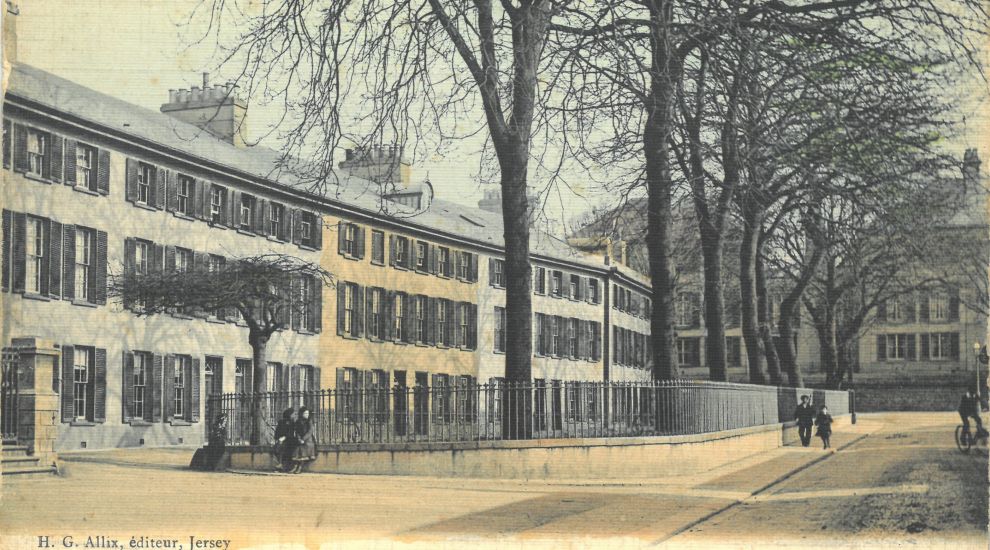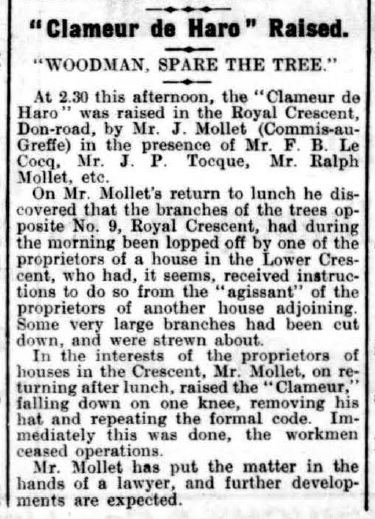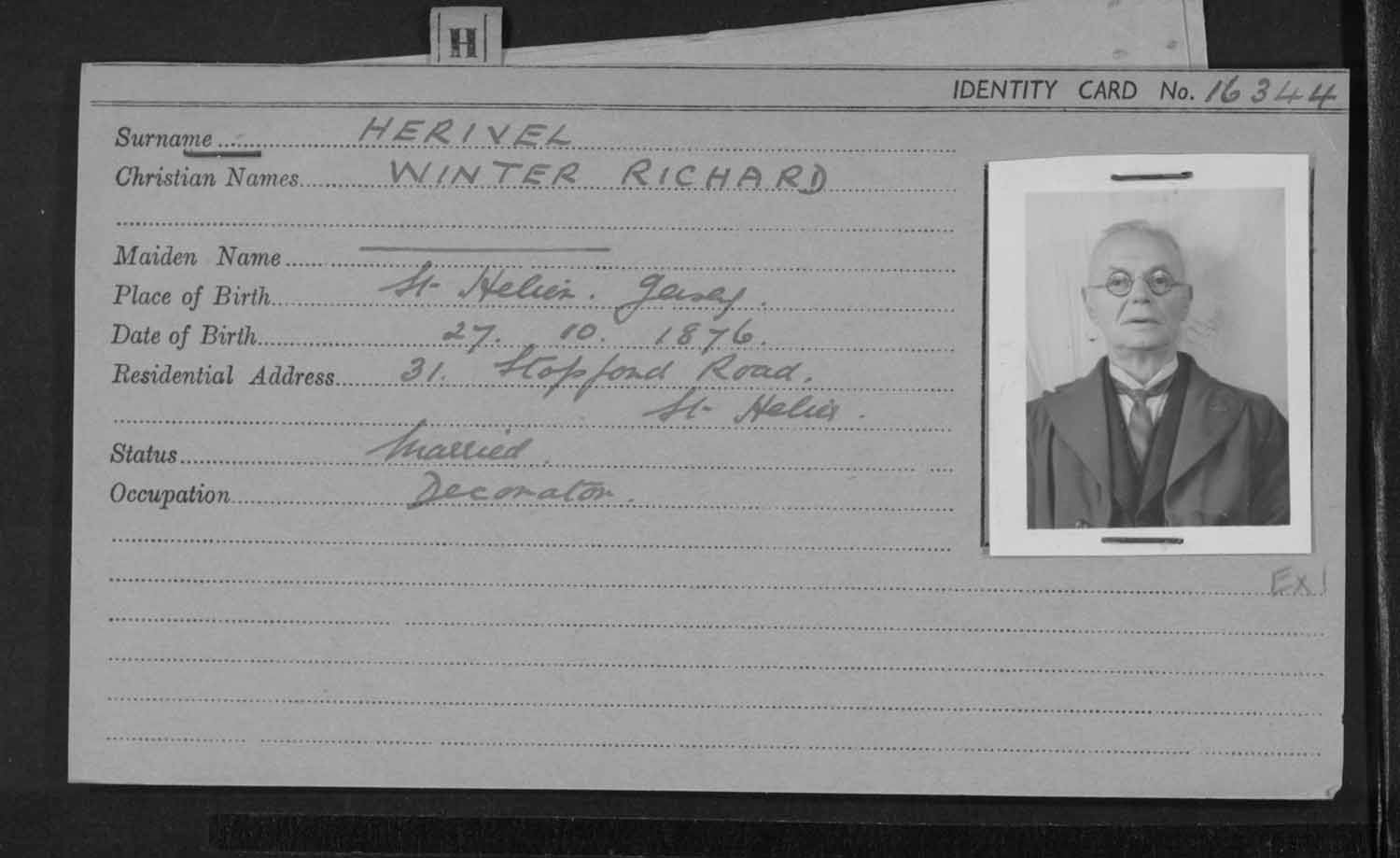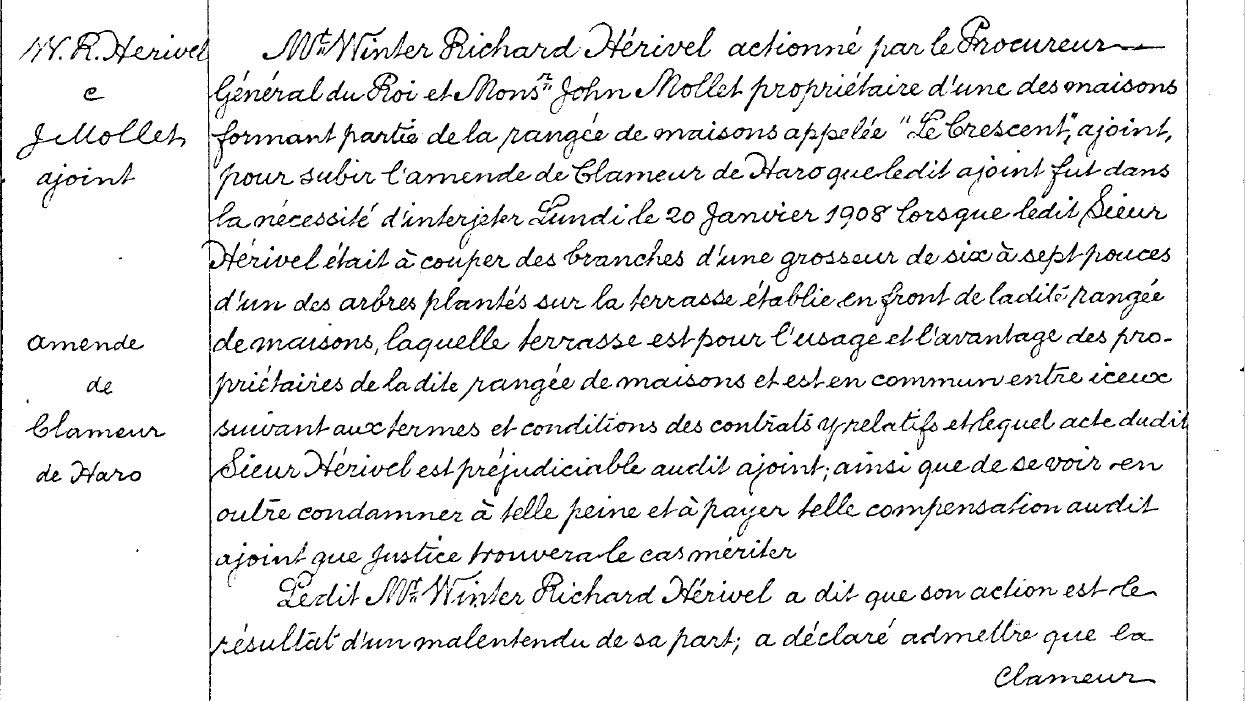


After the felling of an iconic tree near Hadrian's Wall made national headlines yesterday... Local historians have shared a Jersey story with a more positive ending – when a set of oak trees was given a last-minute reprieve from being chopped down after a horrified landowner evoked the ancient custom of ‘clameur de haro’.
The clameur, a custom that dates back over a thousand years and is still recognised in Jersey law today, was used by John Mollet on 20 January 1908 after he returned to his home in Royal Crescent, Don Road, St Helier, for lunch and was given a nasty surprise.
To his horror, he discovered that whilst he was out, some of the old oak trees outside his house were being chopped down without his permission.
As he was the Commis au Greffe of the Royal Court he knew a thing or two about the Law and dropped to his knees, saying the ancient invocation of clameur de haro: “Haro! Haro! A l’aide mon Prince. On me fait tort.”
This translates as: "Hear me! Hear me! Come to my aid, my prince. Someone does me wrong.” Understanding that this meant an immediate interim injunction, the workmen dropped their tools and stopped cutting back the trees, which had been standing for over 80 years.
On further investigation, it was discovered that the work had been ordered by Winter Richard Herivel, a neighbour who believed that the land on which the trees were planted belonged to him.

Pictured: Newspaper clippings record the 'Clameur de Haro' case (Jersey Heritage)
Newspaper records show that the case was heard five days later in front of the Royal Court and revealed more details. It was divulged that when the clameur was invoked, the workmen were lopping off branches, six-seven inches thick, from a tree. They had been ordered to carry out the work on five different trees in the area by Mr Herivel, who was finding that the light to his house in the street was being blocked.
Advocate Alavoine, who was defending Herivel, claimed the trees were on common land and that his client had spoken to some homeowners in the Crescent, who had consented to them being chopped down. However, he had obviously not discussed it with all interested parties.
He told the Royal Court that as soon as the ‘clameur de haro’ was raised, the workmen desisted their work and Mr Herivel expressed extreme regret for the action. The Advocate reassured the Court that his client “had no intention of committing an act of sacrilege”.
Advocate Alavoine also told the Court that Mr Herivel had since sought the services of a competent gardener to “give the injured tree all the care it needed”. He admitted that the clameur had been correctly raised and that Mr Herivel’s error was due to a misunderstanding.

Pictured: Occupation registration card of Winter Richard Herivel (Jersey Heritage)
Mr Mollet accepted that the issue was caused by a mistake and that Mr Herivel had shown the proper contrition. Advocate Nicolle, speaking on his behalf, said that it was not his intention to seek compensation and that he was happy that the tree would receive the proper attention. He also decided not to seek costs for bringing the case.
However, the Court didn’t seem quite as happy about Mr Herivel’s misdemeanour. The Attorney-General, who was prosecuting, remarked that “he could not quite understand Advocate Alavoine’s contention that the tree could be replaced considering a branch had been lopped off”.

Pictured: Royal Court record of the Royal Crescent Clameur de Haro (Jersey Heritage)
The Bailiff, who was presiding, also said the defendant had been treated extremely leniently.
The Attorney General demanded that Mr Herivel should pay the fine of the clameur de haro as well as costs. The Court agreed, although the records available don’t reveal the price Mr Herivel actually paid for his brush with the law and this ancient custom.
Comments
Comments on this story express the views of the commentator only, not Bailiwick Publishing. We are unable to guarantee the accuracy of any of those comments.